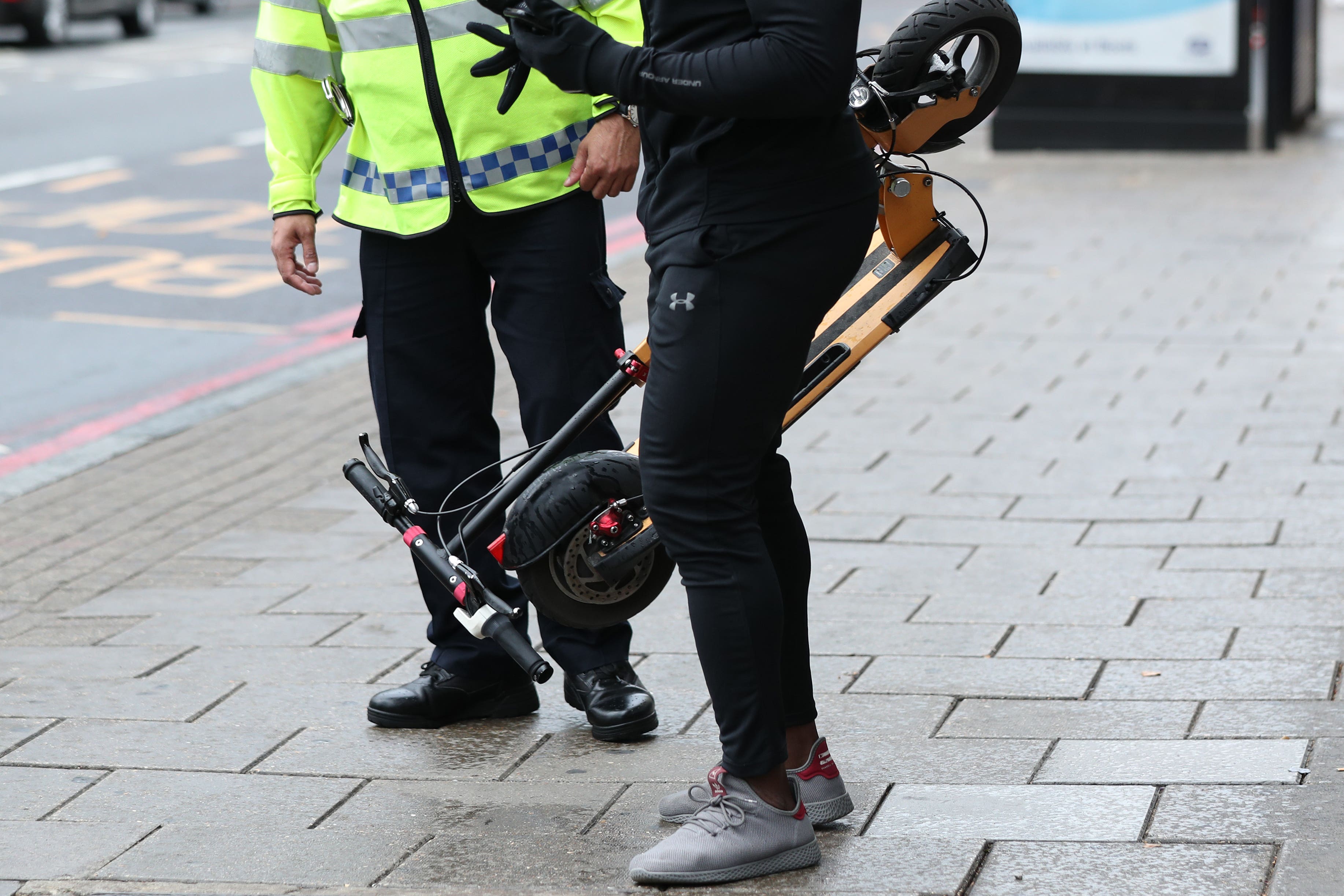A sharp rise in teens caught using a vehicle without insurance has been linked to the increasing popularity of electric scooters.
Road safety charity IAM RoadSmart is urging the government to introduce new legislation concerning the scooters.
Figures obtained from the Driver and Vehicle Licensing Agency (DVLA) by the charity reveal a stark 2,200 per cent surge in IN10 endorsements – the code for using a vehicle without insurance – issued to children aged 13 to 16.
A total of 375 endorsements were issued in 2024, compared to just 17 in 2021.
IN10 endorsements are offences that stay on a driver’s licence for four years and can result in a fine of £300.
“The number of children caught driving or riding without insurance is shocking and is likely to be down to the those riding e-scooters,” IAM RoadSmart director of policy and standards Nicholas Lyes said.
It is illegal to ride a privately owned e-scooter on a public road or pavement.
However, they are widely available for sale and have become a common sight, particularly in urban areas.

Mr Lyes said it was estimated that more than 750,000 private e-scooters had been purchased.
“The government needs to urgently bring forward legislation on private e-scooters, which must include minimum-type approval device standards, speed limiters and proposals for riders to have a minimum level of competency.”
Insurance is not available for privately owned e-scooters.
Separate Department for Transport (DfT) figures show six people were killed and 416 were seriously injured in crashes in Britain involving at least one e-scooter in 2023.
Trials of rental e-scooters on roads in England have been ongoing in towns and cities since July 2020.
IAM RoadSmart also found 7,234 IN10 endorsements were handed to people aged 17-21 in 2024. That was more than double the total of 3,340 in 2021.
For young car drivers aged 17-24, uninsured driving was likely to be a result of cost pressure, Mr Lyes said.
“Young people pay the largest insurance premiums of all and rely on vehicles for independence and work opportunities.
“While there may be some light at the end of the tunnel with premiums starting to fall, cost will remain a barrier and some may continue to break the law unless we see significant change.”
Mr Lyes said there were levers the government could pull.
“Insurance premium tax breaks for those undertaking additional training would be a good start and can be an incentive for new drivers.”
A DfT spokesperson said: “We are carefully considering next steps on e-scooters, but in the meantime private ones remain illegal for use on public roads.
“We are committed to tackling high car insurance costs as part of our Plan for Change to raise living standards across Britain and that’s why we have set up a cross-government taskforce to look at how we can help stabilise or reduce premiums.”
READ SOURCE













